Rim Helaoui
PhilHumans: Benchmarking Machine Learning for Personal Health
May 04, 2024



Abstract:The use of machine learning in Healthcare has the potential to improve patient outcomes as well as broaden the reach and affordability of Healthcare. The history of other application areas indicates that strong benchmarks are essential for the development of intelligent systems. We present Personal Health Interfaces Leveraging HUman-MAchine Natural interactions (PhilHumans), a holistic suite of benchmarks for machine learning across different Healthcare settings - talk therapy, diet coaching, emergency care, intensive care, obstetric sonography - as well as different learning settings, such as action anticipation, timeseries modeling, insight mining, language modeling, computer vision, reinforcement learning and program synthesis
TF-IDF vs Word Embeddings for Morbidity Identification in Clinical Notes: An Initial Study
Jun 09, 2021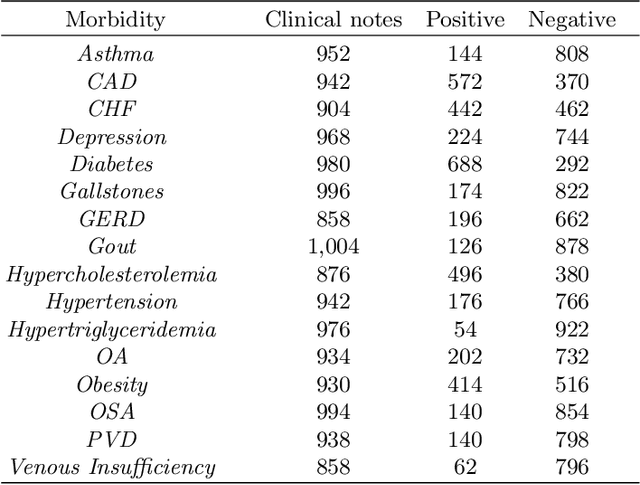
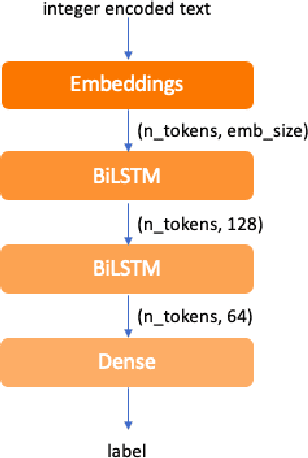
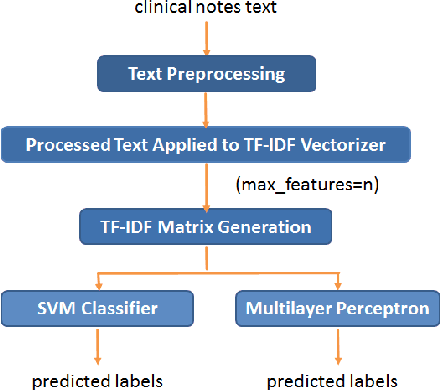
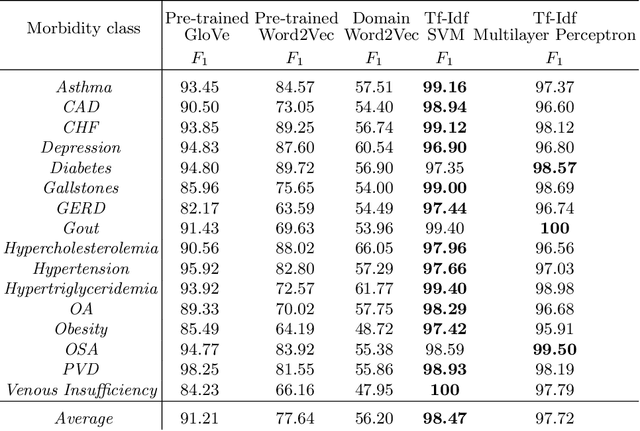
Abstract:Today, we are seeing an ever-increasing number of clinical notes that contain clinical results, images, and textual descriptions of patient's health state. All these data can be analyzed and employed to cater novel services that can help people and domain experts with their common healthcare tasks. However, many technologies such as Deep Learning and tools like Word Embeddings have started to be investigated only recently, and many challenges remain open when it comes to healthcare domain applications. To address these challenges, we propose the use of Deep Learning and Word Embeddings for identifying sixteen morbidity types within textual descriptions of clinical records. For this purpose, we have used a Deep Learning model based on Bidirectional Long-Short Term Memory (LSTM) layers which can exploit state-of-the-art vector representations of data such as Word Embeddings. We have employed pre-trained Word Embeddings namely GloVe and Word2Vec, and our own Word Embeddings trained on the target domain. Furthermore, we have compared the performances of the deep learning approaches against the traditional tf-idf using Support Vector Machine and Multilayer perceptron (our baselines). From the obtained results it seems that the latter outperforms the combination of Deep Learning approaches using any word embeddings. Our preliminary results indicate that there are specific features that make the dataset biased in favour of traditional machine learning approaches.
Towards Detecting Need for Empathetic Response in Motivational Interviewing
May 20, 2021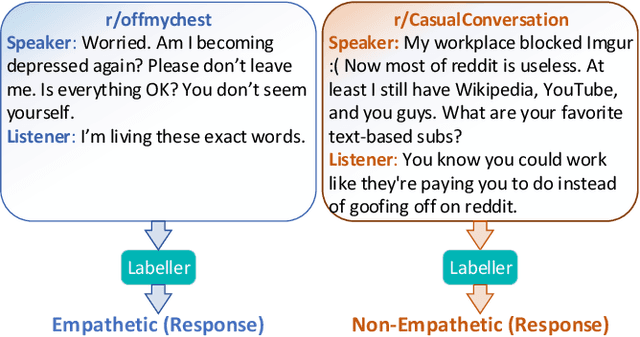
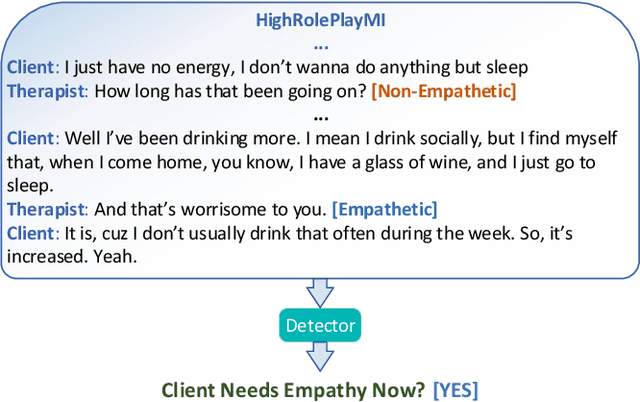
Abstract:Empathetic response from the therapist is key to the success of clinical psychotherapy, especially motivational interviewing. Previous work on computational modelling of empathy in motivational interviewing has focused on offline, session-level assessment of therapist empathy, where empathy captures all efforts that the therapist makes to understand the client's perspective and convey that understanding to the client. In this position paper, we propose a novel task of turn-level detection of client need for empathy. Concretely, we propose to leverage pre-trained language models and empathy-related general conversation corpora in a unique labeller-detector framework, where the labeller automatically annotates a motivational interviewing conversation corpus with empathy labels to train the detector that determines the need for therapist empathy. We also lay out our strategies of extending the detector with additional-input and multi-task setups to improve its detection and explainability.
 Add to Chrome
Add to Chrome Add to Firefox
Add to Firefox Add to Edge
Add to Edge